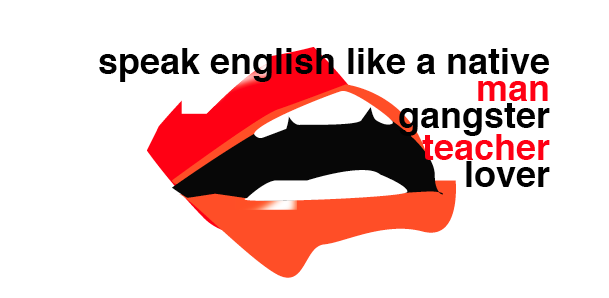
Spot the misspelled words!
Gurl, sup, chillen, ur, prolly, ho and kno.
But don't h8; these might be better spellings than the ones we currently have.
English spelling could use a retooling, although a conscious effort to retool it is not the route that would achieve this. Nope, it would have to trickle into a new era, caused mostly by all the horny people on chatrooms who are too busy uploading fake pics of themselves to worry about prescriptive linguistics. Currently the spelling is more historical than phonetic, with words preserved to give a clue to their origins more than their pronunciation. The common usage of phonetically spelt-out words will eventually make English a language that is easier to learn, which will benefit people with less access to educational tools and the poor ol' rest of the world that has to learn English to watch "Gilmore Girls" and get a job at the new global Best Buys poppin' up everywhere.
"So why is the "k" still on "kno"?" you might ask.
Probably because its homonym, the word "no," is so common, and spelling them the same way is less practical than just keeping the "k" for differentiation purposes.
This section NERDS ONLY
English is one of the least phonetically written alphabetic languages out there. In fact, some linguists think that English is partly a pictographic language because the spelling is so inconsistent that we have to visually memorize what words look like. Remember trying to memorize spelling "daughter" as a kid? Tricky tricky stuff. Part of the reason English is so confusing is because historically when it adopted new words, it did not rationalize them into its own spelling system. That's why we spell "tortilla" with two l's instead of "torteeya." (Of course there was some transliteration, especially for languages that don't use the latin alphabet, but even then, there's little consistency. Chinese transliterations, I believe, are based on a Russian system. That's why you can't pronounce them right and PROLLY embarrass yourself. Do you say Zhang as "Zayng" or "Jahng"? It's the latter.) The base structure of most native words incorporates both Germanic-based and Latin-based phonetic spelling systems, as well as spelling from the surrounding areas.
Here's a sample:
Christopher Columbus sailed the ocean blue.
Christopher is Greek (thus the "ch"), Columbus is Latin, the "ed" ending on "sailed" is of Germanic origin, ocean is Greek again and blue is from French of course.
And cuz most people aren't nerds like me, they don't care. They just want to spell things quickly, rationally and effectively.


No comments:
Post a Comment